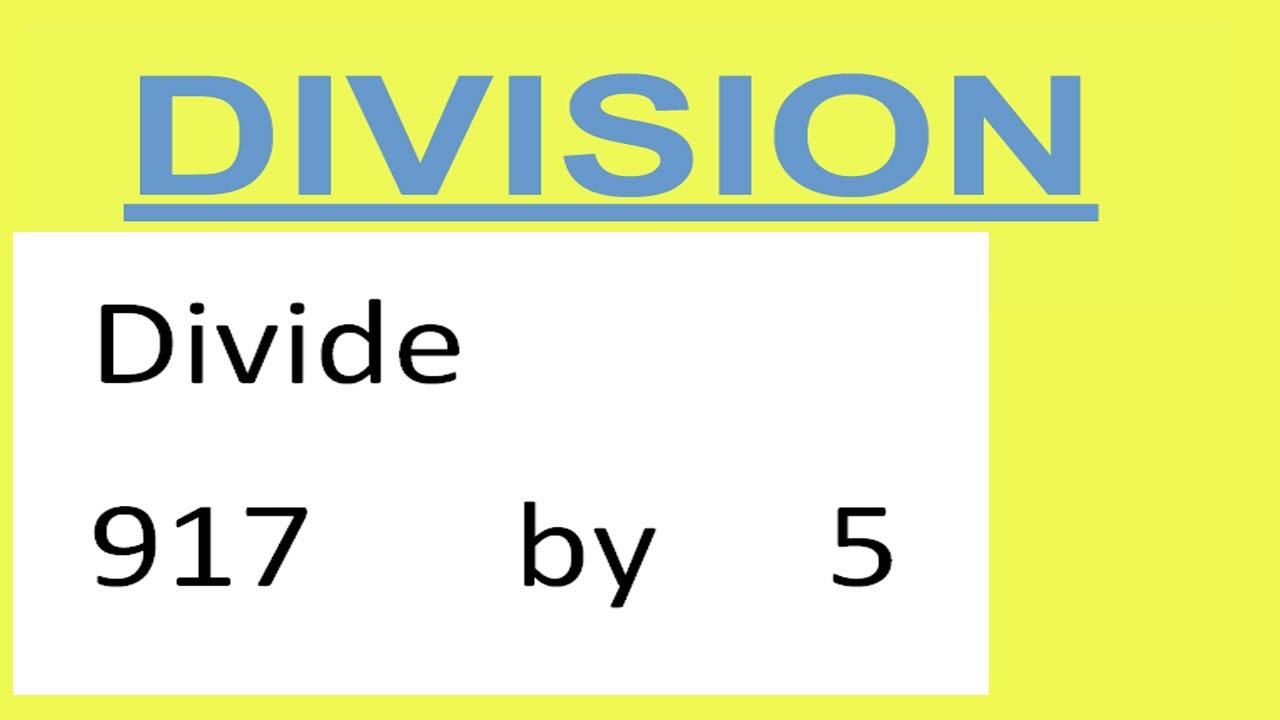Okay, so today I was messing around with some numbers, and I got to thinking about whether 917 can be evenly divided by 5. You know, like, can you split 917 into 5 equal parts without anything left over?
First things first, I grabbed my calculator. I punched in 917 divided by 5. The screen showed 183.4. Hmmm, that’s not a whole number, so I knew right away that 917 can’t be divided by 5 perfectly. But I wanted to see what’s going on there.

I remembered this trick about divisibility rules. It’s like a shortcut to figure out if a number can be divided by another number without actually doing the division. For 5, the rule is super simple: a number can be divided by 5 if its last digit is either a 0 or a 5.
So, I looked at 917. The last digit is 7, which is neither 0 nor 5. That means 917 can’t be evenly divided by 5. It’s like trying to share 917 candies among 5 kids equally, it just won’t work out perfectly.
Breaking it down:
- I tried dividing 917 by 5 using a calculator and got 183.4.
- I recalled the divisibility rule for 5, which says the last digit should be 0 or 5.
- I checked the last digit of 917, and it’s 7.
- I concluded that 917 cannot be evenly divided by 5 because 7 is not 0 or 5.
But I was still curious, what if I wanted to do this the old-fashioned way, like with long division? I set it up, and sure enough, 5 goes into 917 one hundred and eighty-three times, but there’s a remainder of 2. That’s why the calculator gave me 183.4. The “.4” part is another way of showing that remainder of 2 when you’re working with decimals.
So there you have it. 917 divided by 5 is 183 with a remainder of 2, or 183.4 if you’re looking at decimals. It’s not a clean division, but it’s a good reminder of how numbers work. That’s all from my little number adventure today. Hope you found it as interesting as I did!